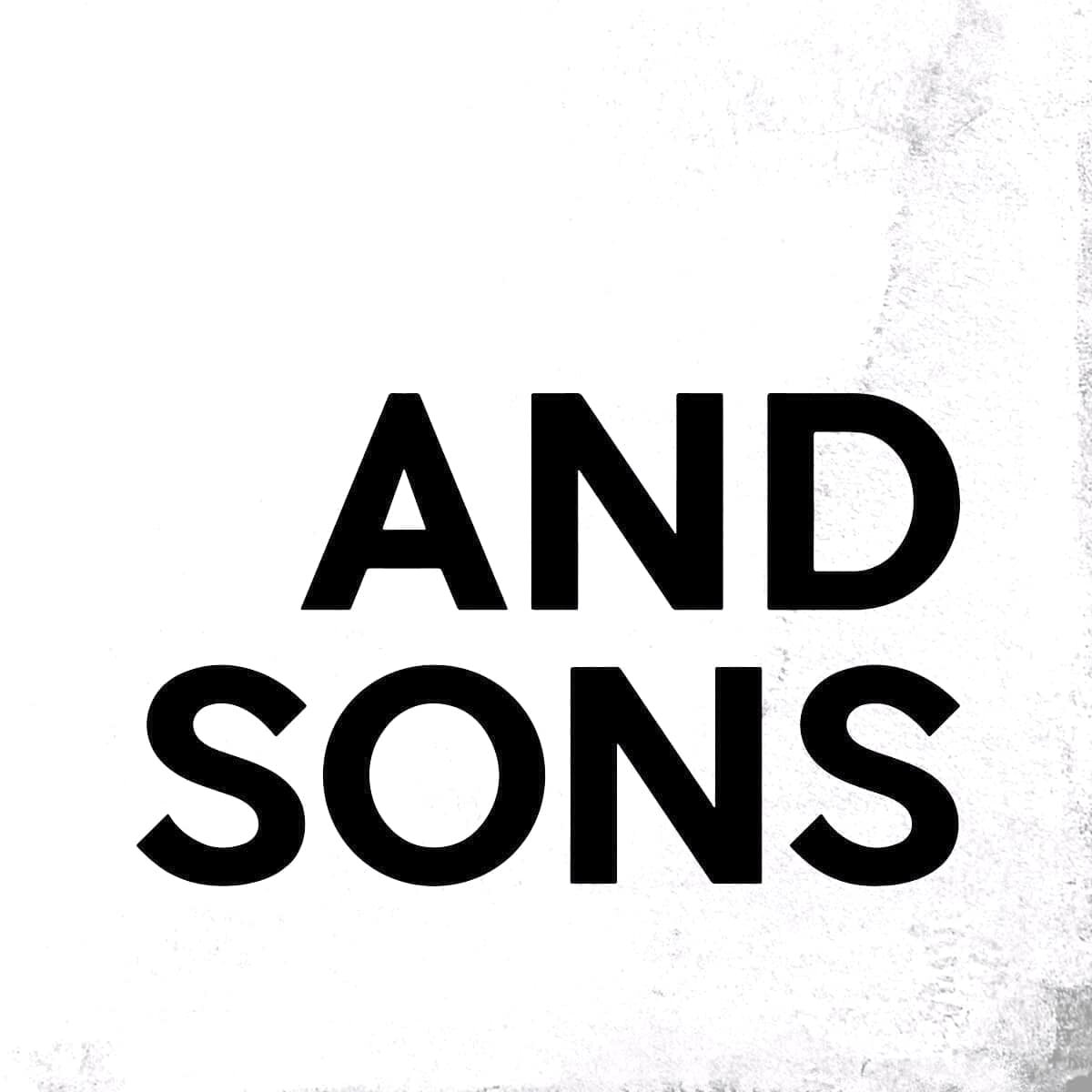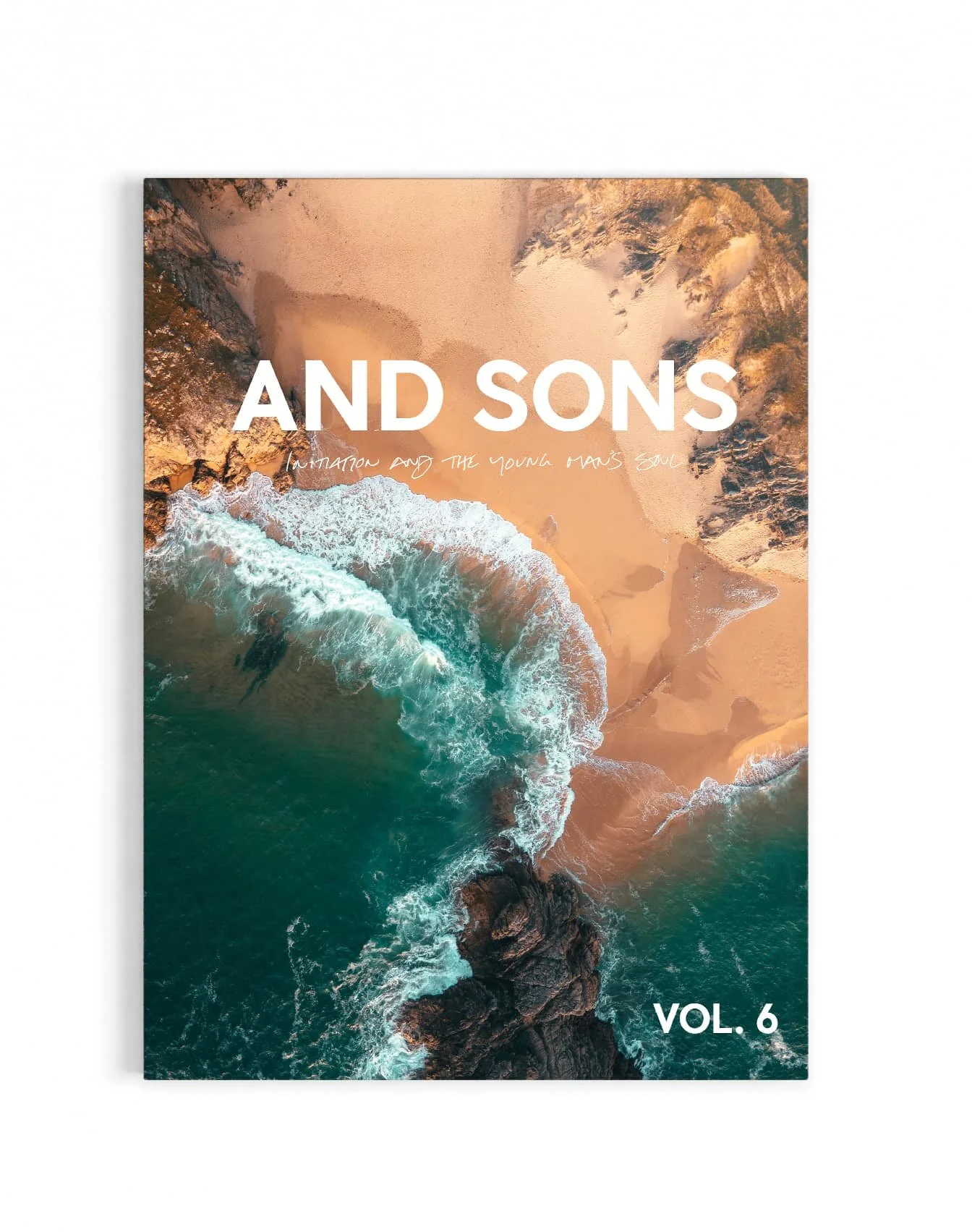Annie, Vomit, & the Coffin
by Dave Small
I wonder if we make coffins so we have something busy to do with our hands because we don’t know what to do with our hearts.
They empty out all the sawdust and shavings and even spend time sanding it. It seems a bit unnecessary, but at the same time totally necessary to keep the hands and mind occupied. They wrap the wooden coffin in a silver tarp. The corners are tight like a department store Christmas present, wrapped perfectly and stapled into place. It looks beautiful. As I survey the wooden box, I can’t help but think it’s going to be too cramped. Once they put the lid on and hammer it shut, there’s not going to be enough space or oxygen in there. I feel a bit of panic rise up in me as I think of his final resting place.
His body lies just 10 feet away. Candles burning around him, someone has brought his plate with a full meal prepared on it. As if he is just taking a nap and will wake up from this whole ordeal with quite an appetite. But he won’t wake up. And I can only hope that he is feasting with Jesus now, so full of joy. But I don’t know.
I am angry at the people who taught me first aid and CPR. It’s irrational anger, but I just need to direct my feelings somewhere. No one told me that CPR was so violent. When I learned CPR, it was in a temperature-controlled classroom. We had nice mats to kneel on when we did our chest compressions on the dummy they so carelessly called Annie. Annie had no limbs and was clean and sterile. Annie didn’t vomit into your mouth when you gave breaths. The instructor was talking into my ear, telling me what to do, and I only did just enough to prove that I knew what I was doing.
They didn’t tell me we would need to do compressions for long after my strength had failed, long after it made sense. They didn’t tell me that we would be kneeling in vomit and blood and fluids and dirt. They didn’t tell me that the casualty will most likely have soiled himself.
In class, everyone got a pat on the back and was told they were able to save Annie. But that cough and gasp for air from the casualty, that thought of “phew, it’s all going to be ok... just like TV,” doesn’t come. Instead you just keep doing compressions. You look around pleadingly at the crowd that has gathered, desperately hoping someone will know what to do, but all the eyes confirm what you’re afraid of. It’s time to stop. But you don’t stop because you think “Just one more compression, one more breath, and then he’ll cough.”
You think stopping is giving up on him. You wish there were a doctor to take over, but there is no one. The body you’re kneeling over was alive and laughing only an hour ago. Now it’s cold and lifeless.
His backpack is beside him, as if he is going on a trip. His canteen is full of water, and someone’s even bought him a Coke and a few cigars. His shoes are neatly put together just below his feet, socks in each shoe ready to slip on, and his flip flops side by side right next to his shoes. One of the other teams has made a sign saying he’s part of their family. The other teams all follow suit and soon his body is surrounded by beautiful wreaths made from jungle flowers. Each team naming him as one of their own, as part of their family, as part of the Free Burma Rangers (FBR) family. There is something healing about the beauty of the flowers and the wreaths. A small reminder of goodness and new life.
As the body hardens in rigor mortis, a brownish fluid leaks from his mouth, nose and ears. Students take turns all night sitting beside him and dabbing the fluid away with cotton balls.
I sit beside him. I hold his hands, which are folded together over his chest. I pray that Jesus will have mercy on his animist soul. I pray for his family who sent him here to training from which he won’t return.
I keep expecting him to stir and slowly yawn and stretch and open his eyes as if he is only sick and coming out of a deep sleep, comforted to see me holding his hand, smiling his beautiful smile at me. But he doesn’t stir. Something we take for granted, the rise and fall of the chest, is noticeably missing.
I think about the pronouns I use to describe him as I write. Him. His. A man. A person. A brother, and I wonder when it shifts in my vocabulary that he stops being a “him” and starts just being a body. A corpse. Separate from the being, separate from the man. The coffin is finished and placed next to him.
We lay his body in the classroom, center stage. One blanket is rolled up as a pillow; another covers his body.
Only his face showing. Slowly, the students filter in. I am surprised when a group of students sits down on the stage not far from his body and starts to play cards. It seems callous. Students go back to their dorms and one by one bring hammocks and blankets back with them. They are going to sleep together one last night with their fallen brother.
Hammocks are strung up all around the classroom, in windows and rafters, every student is there. Then, what I can only describe as a party begins. A full celebration. It starts with us all standing and singing our Ranger song to him, and then our guitar player starts taking requests. Demoe plays with such passion and bravado, the best I’ve ever seen him play, only pausing momentarily to choke back tears. A large speaker is soon put out and loud karaoke begins and won’t stop until 4 a.m. the next morning.
All night we shout out the joyful choruses to our favorite songs. Movies start playing, food and drinks are brought out, campfires are lit, gamers game on their phones. There is laughter, dancing, stories, running around.
It is beautiful, crazy chaos. And when they are ready, each student and staff member sits beside his body, the only relatively calm place in the room. They light a candle, clean his face, hold his arm or hands or just sit quietly, keeping him company. At times the celebration is so raucous that people are tripping over his feet and legs. I know he would have laughed at that. I know he would be smiling at the whole celebration.
We hold a ceremony for him the next morning.
I am asked to say something, but no words come.
It seems no words will comfort. I muster to tell them I am sorry and that I love them.
When everyone has had a chance to share, we lift his body into the coffin. We have to unfold his hands and force them to the side of his body so we can get the lid on. it’s a tight fit. The coffin is attached to bamboo poles, and on the count of three we lift together and raise him to our shoulders. I am standing in the middle, right next to a photo of him fixed to the coffin, his hopeful young eyes staring at me as the procession slowly leads us through camp. “I am sorry,” I whisper to him.
We carry the coffin from one side of our camp, right through the middle, across the bridge and through the other side. We cross the river again, this time wading through the waist-deep water and then through the jungle to where some of the students have dug a hole for him. I think about the students who dug the hole, how they are often told to dig holes, but this hole isn’t for a trash pit, or a fence post, or a toilet. This hole is his grave. I wonder if it felt different, not like work, to dig this hole. They have picked a beautiful spot in the jungle, not far from the river that took his life.
It starts to rain as we open the lid one last time, shielding his face and placing inside his canteen, backpack,
a few of his possessions, and his plate of food.
We read a proclamation from FBR, then tear the proclamation into pieces and place it in the coffin. We seal it and hammer it shut.
Using ropes, we lower the coffin into the grave and each student takes turns picking up a handful of dirt and dropping it into the hole. The dirt sticks to our hands like his life sticks to our heart. We fill the hole with sand and rocks and place all the wreaths around him and a FBR flag. Then we silently make our way back through camp, consumed with our thoughts and feelings. And just like that, it is finished. Yet my heart feels unfinished. Grief will take time.
To sit for as long as needed, touching the body of our brother, is healing, a loving goodbye, if not for him, then for us. Death is contagious: one day we’ll all catch it.
We do, however, get to choose how we live each day, how we pour out our love and our grief and our tears and our laughter onto the lives, and souls, of those God brings in front of us, for however long He chooses.
In memory of Saw Gay Ku, Karen State, Burma. Read more about the author’s organization at:
Print isn’t dead.
If you enjoyed this article, you’d probably love more like it in the And Sons print issue. If you don’t have one of these on your coffee table right now, you should probably go explore our back issue catalog.





